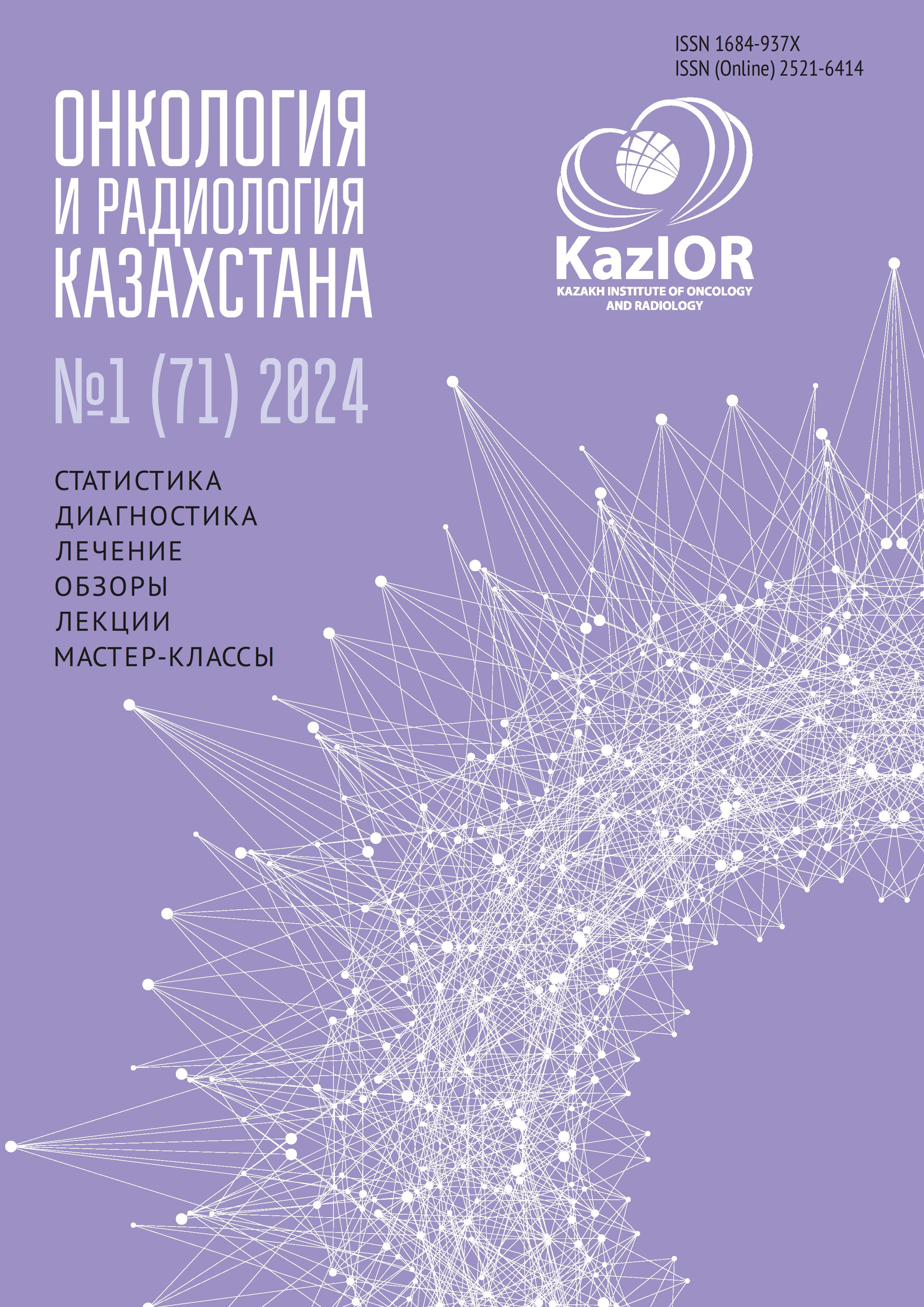Көмей-жұтқыншақтың жергілікті ісігін хирургиялық емдеуде жұтқыншақ ақауын қалпына келтіру: әдебиетке шолу
DOI:
https://doi.org/10.52532/2521-6414-2024-1-71-51-56Кілт сөздер:
көмей-жұтқыншақ қатерлі ісігі, жұтқыншақтың және жұтқыншақ пен өңештің мойын бөлігінің реконструкциясы, висцералды тін кесігі, фасцио-тері кесігі, бұлшықет-тері кесігіАңдатпа
Өзектілігі: 2022 жылы Қазақстан Республикасында алғаш рет көмей обыры және 151 көмей обыры бар науқастардың 370 жаңа жағдайы тіркелді, оның ішінде аурудың IV сатысында көмей обырының 12.1% және көмей обырының 18.9%. Көмейдің зақымдануы кезіндегі бір жылдық өлім – жітім көрсеткіші 40,5%, бір жылдық өлім-жітім мен қараусыз қалу (IV кезең) арасындағы арақатынас – 2,3% құрады. Т3-4 көмей-жұтқыншақ қатерлі ісігі кезінде бүгінгі таңда ларингоэктомиямен және мойын стомасының пайда болуымен көмей-жұтқыншақтың дөңгелек резекциясы ғана таңдау операциясы болып қала береді. Пациенттерді мүгедектікке ұшырату перспективасы-фарингостоманың, эзофагостоманың, трахеостоманың қалыптасуы, үнемі сілекейдің ағуы, түтікпен тамақтану қажеттілігі және т.б., науқастың жеке басына орны толмас психологиялық зиян келтіреді. Осыған байланысты онкологиялық науқастарда жұтқыншақ пен көмейді қалпына келтіру проблемасы оңалту кезеңі ретінде ғана емес, сонымен қатар пациенттердің осы күрделі санатындағы ісікке қарсы емдеу тұрғысынан қажетті элемент ретінде өте маңызды болып табылады.
Зерттеудің мақсаты – онкологиялық науқастарды оңалтуды жақсарту және ісікке қарсы емдеуді оңтайландыру мақсатында оның таралуы мен өлімі туралы статистикаға сүйене отырып, көмейдің қатерлі ісігін хирургиялық емдеуде жұтқыншақ ақауын қалпына келтірудің маңыздылығын бағалау.
Әдістері: Ғылыми басылымдар Google Scholar ғылыми іздеу жүйесі арқылы PubMed, Medline, e-Library, CochraneLab дерекқорларында іздестірілді. Іздеу тереңдігі – 115 жыл. Әдебиеттік шолуға жарияланымдарды енгізу критерийлері: орыс және ағылшын тілдеріндегі басылымдар; PubMed, Medline, e-Library дерекқорларына енгізілген басылымдар; тұжырымдары нақты тұжырымдалған басылымдар; соңғы 10 жылдағы жарияланымдар. Әдеби шолуда жарияланымдарды алып тастау критерийлері: қысқаша мазмұнды баяндамалар; ақылы қолжетімді мақалалар; тезистер. Барлығы 82 дереккөз табылды. Жарияланымдарды қарап шыққаннан кейін әдебиет шолуына 8 дереккөз енгізілді.
Нәтижелері: Әлемдік әдебиеттерді талдау жұтқыншақтың қатерлі ісіктері бар науқастарды хирургиялық емдеу сатысында висцералды автотрансплантаттарды қолдану арқылы реконструктивтік пластикалық хирургиялық әдістерді қолдану мүмкіндігін кеңінен қарастыруға мүмкіндік берді. Сонымен бірге, әдебиеттерде оңалту кезеңінің айтарлықтай қысқаруы және пациенттердің өмір сүру сапасының жақсаруы, сондай-ақ операция жасалған науқастардың мүгедектік деңгейінің төмендеуі сипатталады.
Қорытынды: Көмей-жұтқыншақ қатерлі ісігін хирургиялық емдеуден кейін пайда болған ақауларды жергілікті тіндерді, ығысқан және бос тін кесінділерін пайдалана отырып, біріншілік пластика жасау науқастардың оңалтуын жеделдету және қысқа мерзімде өмір сүру сапасын жақсартудың ең қолайлы әдісі екені сөзсіз.

